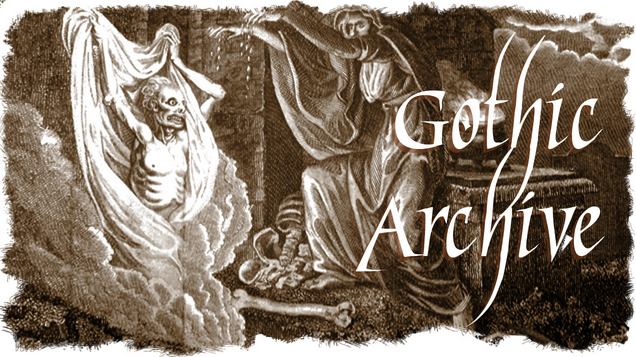Faculty needs are well met by the Digital Commons repository e-Publications@Marquette in the partnership struck between the faculty members and the library with the Gothic Archive project at Marquette University. The Archive interweaves the full spectrum of scholarly material surrounding and including Gothic chapbooks into a scholarly narrative. This faculty-authored published collection takes advantage of the flexibility of their repository which allows faculty to tell their scholarly story through the entirety of their primary and supplemental materials. These include:
- 27 Gothic chapbooks
- extensive metadata descriptions of each chapbook
- introductory text
- transcriptions and original manuscript images
- unpublished papers
- thematically-related content
- a rich glossary
They have developed an easily navigable Gothic Glossary which is built on an auto-collect filter in Digital Commons that sorts by keyword. Browsing by theme, researchers can go well beyond a database experience which sorts by recent content and enjoy a relational experience which sorts by relevant content. For the glossary faculty and graduate students are providing the subject matter expertise, while Rose Fortier, Coordinator of Digital Programs, and Liaison Librarian Heather James are providing the structural, organizational expertise. “It’s a true partnership,” explains Rose, “one couldn’t do it without the other.”
Shortly after she started at Marquette, Rose was approached by faculty member Dr. Diane Long Hoeveler in the English Department. Dr. Hoeveler was looking for a user-friendly digital solution to share and grow the chapbook project—including significant supplemental material—which would also be a seed collection for grant money. Rose suggested they should start by publishing a small collection in the IR which could be used as a vivid example in their grant applications. This turned out to be a successful solution for all these faculty needs.
This collection continues to grow while they are currently holding their breaths on a $350,000 NEH grant. This funding would go towards digitizing the large amount of Gothic chapbooks both here and abroad. Further plans for the Archive embrace partnering with language classes on campus to translate Gothic chapbooks into English for their eventual inclusion. Interactive timelines, GIS, and thematic linkages are also on the drawing board—all this from the seed collection published to fulfil Dr. Hoeveler’s initial needs.
Rose emphasizes the potential “to use the collection as a basis for large-scale analysis of the literature,” benefiting Marquette University’s reputation, scholarly research on this topic, and ultimately meeting the needs of the faculty through full spectrum faculty-authored publication opportunities within the IR.







